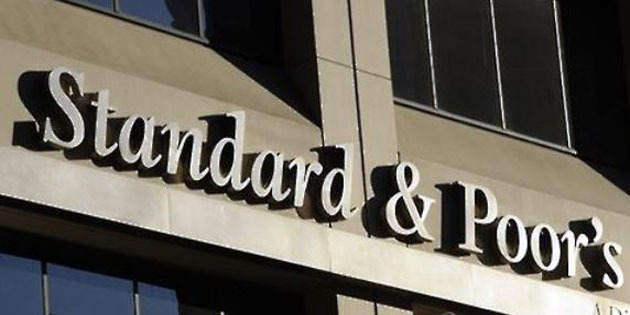Tensions over a raft of provocations by North Korea are not high enough to adjust ratings on South Korea, a senior official of the global rating agency Standard & Poor's said Thursday.
"As long as there is no actual war outbreak, I think the impact is relatively limited, and that's why we don't change our outlook on the rating of South Korea," Kim Eng Tan, senior director of Asia-Pacific sovereign ratings at S&P, said in a brief interview with Yonhap News Agency.
Last month, S&P reaffirmed its long-term sovereign rating on South Korea at "AA," and maintained its outlook at "stable," despite heightened tensions on the Korean Peninsula over North Korea's missile and nuclear programs.
 |
(Yonhap) |
Tan later said in a seminar in Seoul that the credit matrix on the sovereignty of South Korea has been improving.
Last year, S&P upgraded South Korea's sovereign rating to the third-highest grade in the company's evaluation scheme.
Tan said a stable outlook means that S&P does not expect to downgrade South Korea's rating in the next one or two years.
Tan said he does not believe a war is likely to break out, noting that North Korea's intention is not to create a war on the Korean Peninsula but to get the US' attention and force Washington to accept Pyongyang as a normal nation in the global scheme of things.
"There's always the risk of unexpected developments that may push or force the South Korean government to allow conflicts to happen, but at this point in time, we don't think the risks are that high -- at least not high enough for us to reflect it in our ratings," he said in the interview.
Tensions have spiked on the Korean Peninsula in recent months as North Korea has fired intercontinental ballistic missiles and carried out its sixth and most powerful nuclear test.
North Korea has issued a thinly veiled threat to further strengthen its missile and nuclear weapons programs in response to the toughest ever U.N. sanctions imposed on Pyongyang over its latest nuclear test.
"We will expect tensions to remain relatively high for as long as North Korea believes that it has a chance of succeeding in getting what it wants by raising tensions, we will see continual provocations of the country," Tan said in the seminar.
North Korea has long sought to improve relations with the US and sign a peace treaty to formally end decades of enmity since the 1950-53 Korean War, which ended in a cease-fire, not a peace treaty.
Tan also said South Korea's growth rate is pretty decent, compared with other advanced economies.
Still, he said that an aging population, together with growing household debt, may create some downward pressure on growth in South Korea in the medium to long term.
South Korea's overall household debt came to 1,388.3 trillion won (US$1.22 trillion) as of end-June, up 10.4 percent from a year earlier, according to data compiled by the Bank of Korea.
In 2015, the number of South Koreans aged over 65 accounted for 12.8 percent of the country's population. The ratio is projected to grow to 28.7 percent by 2035 and 42.5 percent by 2065, according to the country's statistics office.
A country is classified as an "aged society" if people over 65 make up between 14 and 20 percent of the population.
South Korea's total fertility rate -- the average number of children a woman bears in her lifetime -- stood at 1.25 in 2016, much lower than the replacement level of 2.1 that would keep South Korea's population of 51 million stable. (Yonhap)








